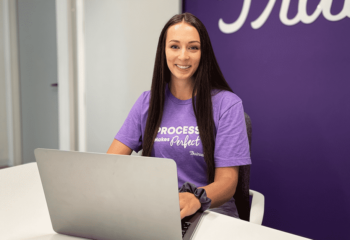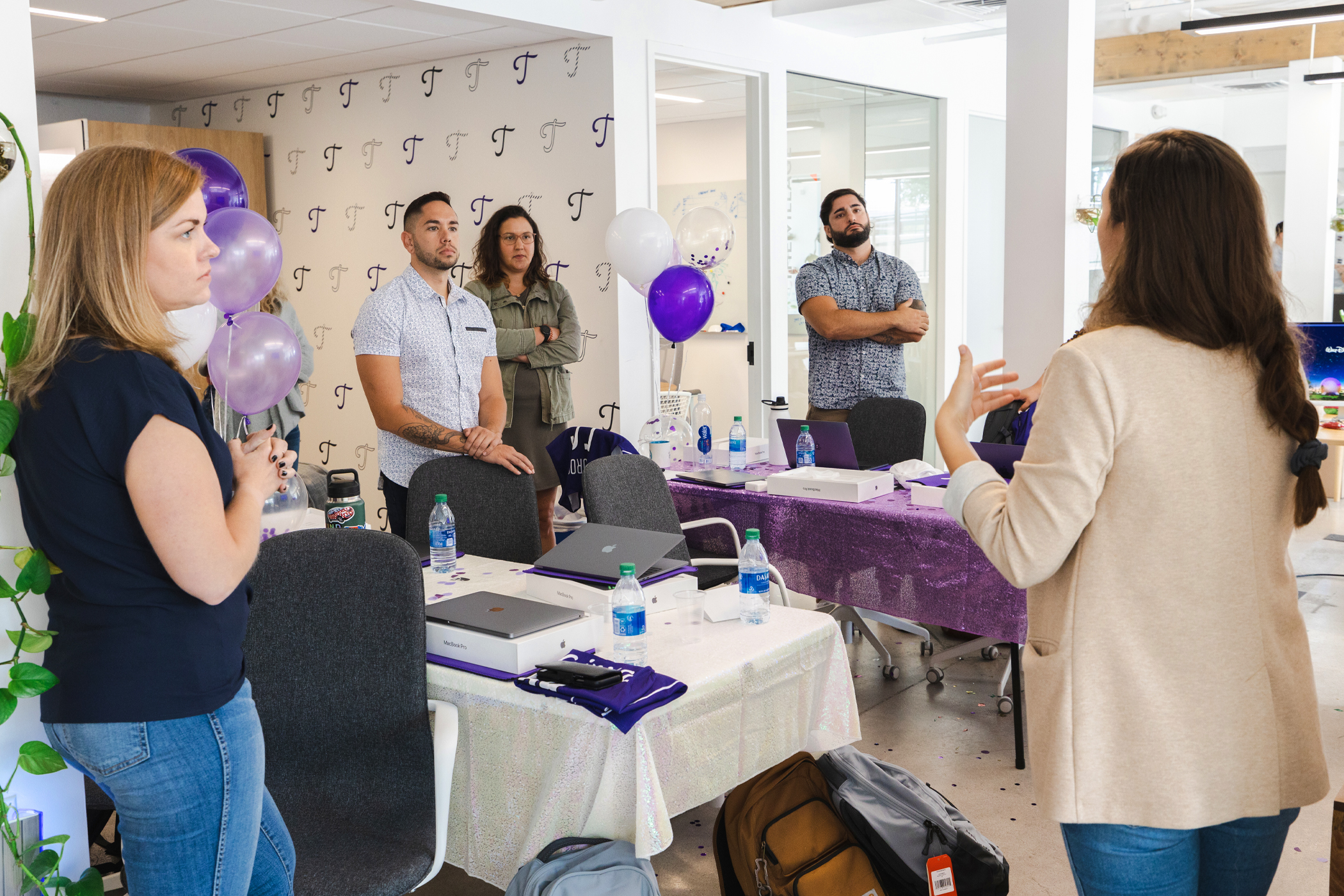
Articles
Your Brand New Hire Just Quit. Now What?
March 21, 2022

"It's not you, it's me."
Raise your hand if you've ever been completely sidelined by that phrase. Most of us, right?
But what happens when that bomb drops... professionally? And from someone who just started working with your team?
Bringing on a new hire is exciting. It means you're ready to start growing your company and hiring the people who can help realize some of your bigger goals. People who you know can bring their A-game from day one, especially after interviewing them, looking at their previous work, and getting to know them a bit. You’d expect/hope that their first few days go well as they settle in and get to know the team.
Then, all of sudden, they decide to leave. :::cue: record screeching:::
Hiring someone and having them abruptly step away can be disappointing (to put it mildly), but it happens more often than you think. A little over 16% of new hires leave within the first week of starting. And for entry-level and intermediate positions, the chances are even higher that they'll l leave the role within the first six months.
Meaning, there may come a day when you lose an employee early on — if it hasn’t happened already. So, let’s talk about how you can better prepare for the day a new hire decides things aren't working out.
When your new hire quits, how do you respond?
Everything seems to be going well, and then... it's not. But the best thing you can do is to be prepared for when it happens.
It’s not you, it’s me.
When a new hire abruptly leaves, it can bring up a lot of questions. And while it’s okay to be disappointed, you want to understand the reasons behind your new hire’s decision to leave.
What happened — was it you? Was it them? Maybe you read them wrong and didn’t properly gauge their interest in the company. Is it possible some outside force like a personal issue came up?
Take a minute to consider what could have gone wrong. Then, ask them for feedback or insights into what could have potentially turned them away.
Reach out to them and make it clear that you care about why they decided to leave. Also, let them know why you’re asking — their feedback is important to addressing potential issues within the company and preventing this situation in the future.
Communicate with your team
When a new hire leaves, it doesn't just impact leadership. Their departure is felt by the rest of the team.
So, be sure to communicate the change to your team as soon as possible. If your team had plans for that new hire, you want to give them a chance to adjust their expectations.
And if your new hire was already taking on responsibilities, then delegate those tasks. Let the appropriate people know that they might have to inherit some of that responsibility. It might also mean you'll need to personally pick up some of that slack. You or someone else on your team will have to assume the responsibilities you planned for your new hire — at least until a new candidate comes on board.
Your replacement plan
One of the first things you should do is create a new hiring plan. Emphasis on the word "new" — you're going to need to shift some of your hiring and onboarding planning.
Remember the feedback we mentioned earlier? It's valuable information that can help you make changes to your onboarding process. You might not always get a response from your former employee, but you can still tackle ways to make your next new hire’s experience better. Many employees quit early on because they didn’t receive clear expectations for their roles or didn’t get effective training.
When you're ready to make your next hire, make sure you’re providing the best onboarding experience possible. You don’t want to lose an employee because of something you did — or didn't — do.
If there were other great candidates up for the role, this is the ideal time to reach out and see if they’re still interested in the position.
And outside candidates aren’t your only option — see if anyone on your team is keen to pivot their role or take on a new challenge (though that would mean hiring someone to fill their position). And if you need some more time to perfect your onboarding experience, consider hiring a freelancer to take on the job responsibilities in the interim.
Losing any employee is hard — especially when they’ve just barely started. It’s okay to be disappointed, but as with any challenge, think of it as a learning experience. One that you can use to perfect your hiring process for the next person joining your team.
Similar Blog Posts





.avif)





